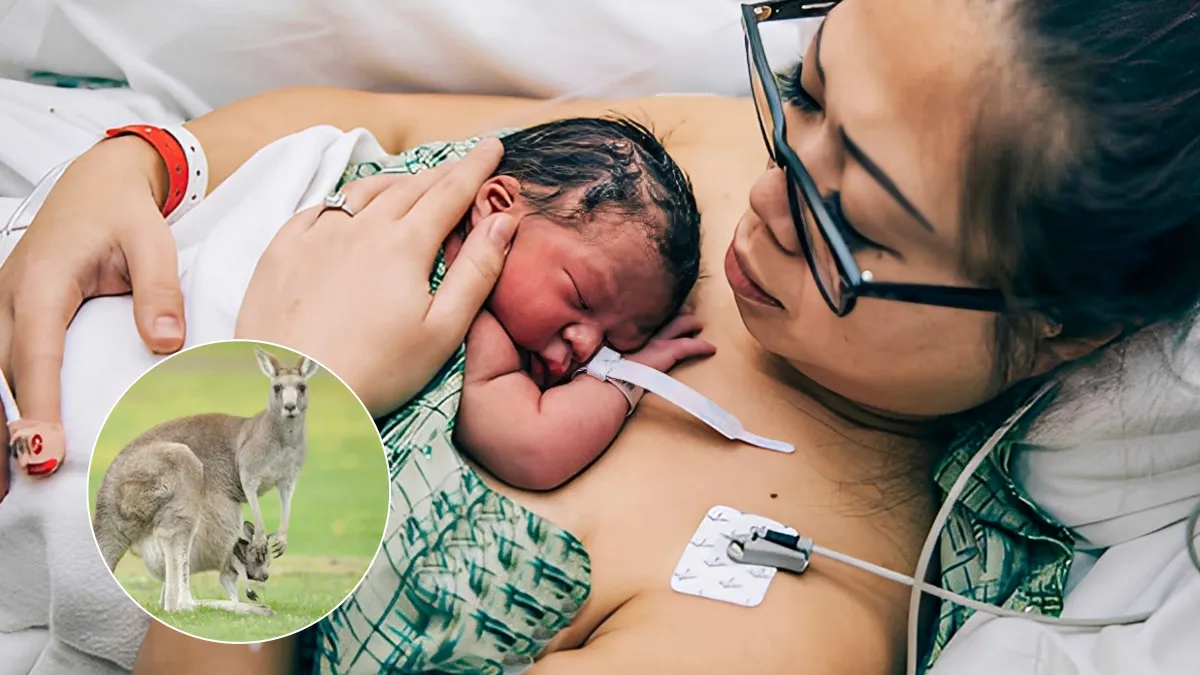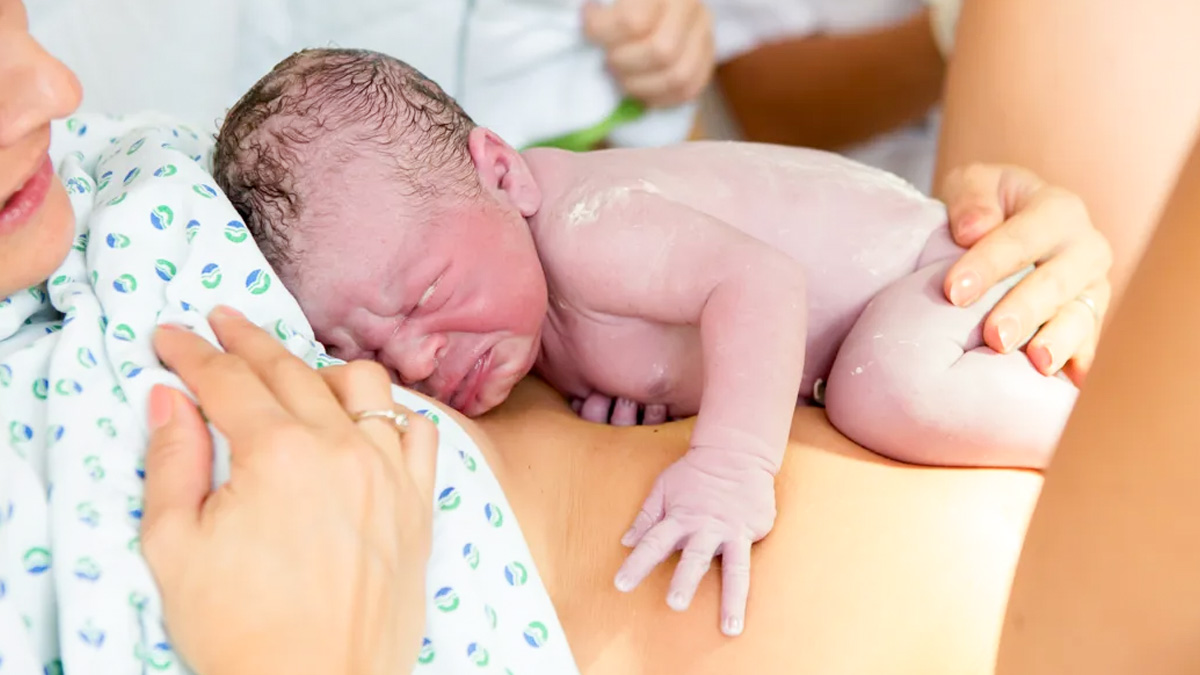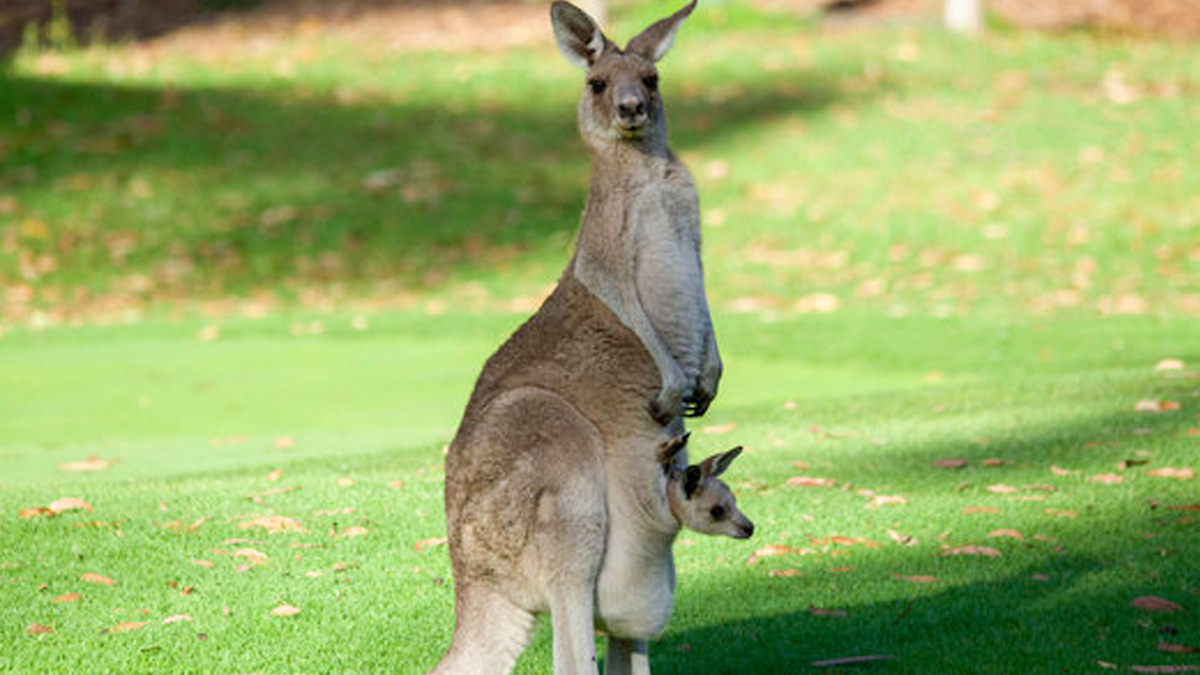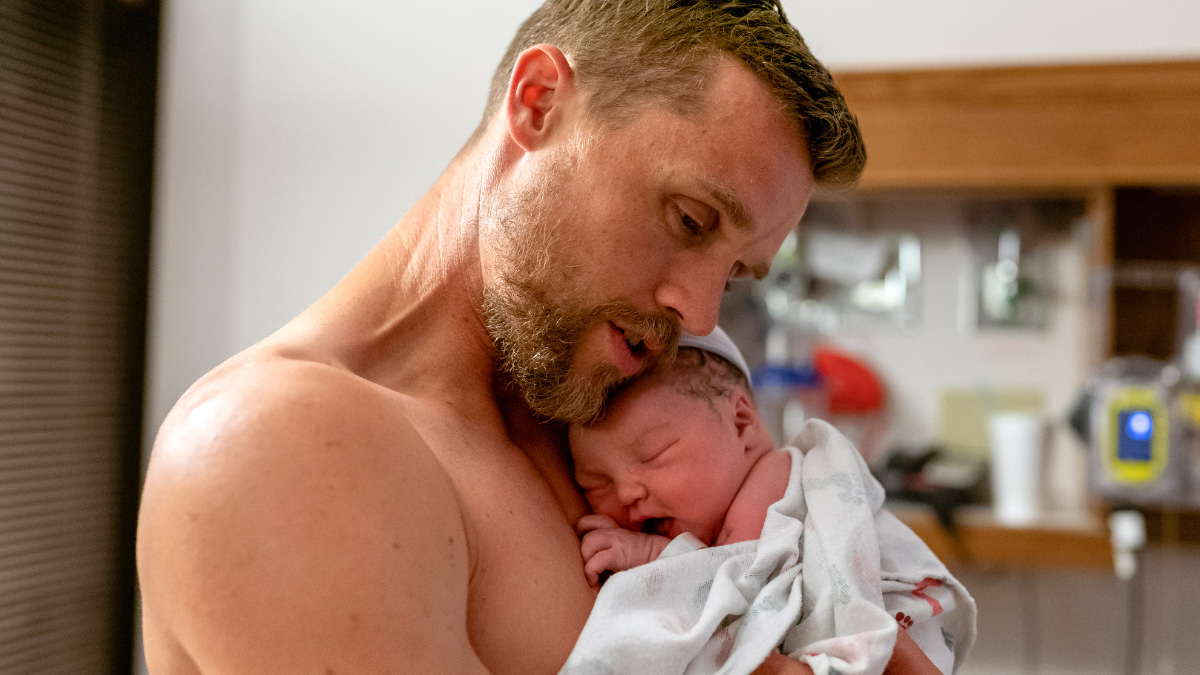
When a kangaroo holds her joey close inside her pouch, she’s doing more than keeping it warm as she’s helping it grow stronger. Turns out, human parents can do something very similar. Doctors call it “kangaroo care”, holding a baby skin-to-skin against the chest.
Table of Content:-
Now, a new study has shown that this simple act can do wonders for very preterm babies’ brain development. For parents of newborns born too early, this research brings a comforting message that the power of touch truly heals.
How Skin-to-Skin Contact Boosts Baby’s Brain![3 - 2025-10-07T152908.066]()
The research by scientists from Weill Cornell Medicine, the National Institute of Health, and Stanford Medicine found that preterm babies who received regular skin-to-skin contact showed stronger brain connectivity than those who didn’t.
Let’s break it down simply:
Preterm babies are those born before 32 weeks and often have underdeveloped brains. This study used MRI scans to observe their brain structure and found that babies who had daily skin-to-skin contact showed more mature neural connections, especially in areas linked to learning, movement, and emotional regulation. Dr Catherine Limperopoulos, senior author of the study, said the findings prove that “the human touch is not only soothing, it’s brain-building.”
ALSO READ: Is Keto Diet Gender Biased? Study Shows How Men and Women Respond to Low-Carb Diets Differently
What Happens During Kangaroo Care?![1 - 2025-10-07T152905.820]()
Kangaroo care isn’t complicated. It involves holding a baby (wearing only a diaper) upright against the bare chest of a parent for at least an hour each day. The baby’s body temperature, heart rate, and breathing begin to sync with the parent’s. It is a process called physiological regulation.
Here’s what happens inside that simple moment of touch:
- Temperature stability: The parent’s chest helps the baby maintain warmth.
- Improved breathing: Babies tend to breathe more steadily when held close.
- Better heart rhythm: The baby’s heartbeat becomes more stable.
- Reduced stress hormones: The contact lowers cortisol, helping brain development.
- Enhanced sleep cycles: Babies sleep longer and deeper, promoting growth.
These small changes have long-term effects on how a baby’s brain grows and functions.
Why It Matters for Preterm Babies
Premature babies face higher risks of developmental delays and neurocognitive challenges because their brains are still forming outside the womb. The study found that consistent skin-to-skin contact may help close that developmental gap. Experts also believe that the sensory stimulation from touch, heartbeat sounds, and warmth acts as a kind of “external womb,” supporting natural brain growth.
What Parents Can Do![4 - 2025-10-07T152912.035]()
If your baby is premature, talk to your neonatologist about when and how to begin kangaroo care. Hospitals today often encourage it, even for babies in the neonatal intensive care unit (NICU).
Here are a few simple tips:
- Wash your hands thoroughly before holding your baby.
- Sit comfortably with pillows for support.
- Place your baby upright on your bare chest, with a blanket over both of you.
- Stay still and calm. Hum, talk softly, or just breathe together.
- Aim for at least one to two hours daily, or as advised by your doctor.
- Even small moments of skin-to-skin contact can make a difference.
The Science Behind the Warmth
Touch is one of the first senses to develop in a baby and one of the most powerful for survival. When skin meets skin, the body releases oxytocin, often called the “love hormone.” It promotes bonding and also reduces stress hormones that can interfere with healthy brain wiring.
ALSO READ: Diabetes Makes Breast Cancer More Aggressive? New Study Claims
Conclusion
This study reinforces something deeply human that warmth, presence, and love have measurable effects on health. For preterm babies, a parent’s touch is more than comfort. It’s medicine, development, and connection rolled into one. Like a kangaroo’s pouch, our arms can be a tiny sanctuary where the brain begins to heal and grow.
Also watch this video
How we keep this article up to date:
We work with experts and keep a close eye on the latest in health and wellness. Whenever there is a new research or helpful information, we update our articles with accurate and useful advice.
Current Version
Oct 07, 2025 15:37 IST
Published By : Vivek Kumar


